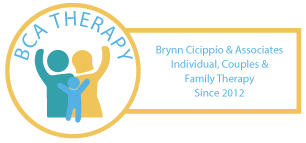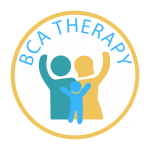
Mental Health during the Holiday Season
These are supposed to be happy times during the holiday seasons. Between everything that may be going on holiday parties, family get togethers, vacations, and celebrating the new year. The holidays can be full of joy, but they can also be stressful and challenging for those impacted by mental health, devastation, or loss of a loved one.
According to NAMI, “You are not alone”, as a 2021 survey showed that three in five Americans feel the holidays negatively impacted their mental health [1].
So, what are ways that we can care for our self during the holiday seasons?
Here are some tips to prevent holiday stress and depression:
- Take care of yourself. This can be done through self-care and forming healthy habits. For example, going on a walk, doing yoga, going to the gym, watching a movie, reading a book or something that can help you feel less worried and take your mind off a stressful environment and help you boost your mental health and deal with stressful activities.
- Ask for help. Talk with a therapist or make plans with a trusted individual, best friend that you can trust, or a trusted family member. Asking for help is not a weakness, it shows that you are strong and have the courage to do so you matter. If you are sad, anxious, depressed, stresses please don’t be afraid to ask for help. BCA Therapy has therapists in Wayne and Yardley that can help you today!
- Focus on what you can control. Don’t worry about things that are out of your control. If something is bothering, you that is out of your control quit worrying about it and thinking about it, there is nothing you can do about it. This will help you relieve a lot of stress and help you focus on what is in your control.
- Avoid drugs and alcohol. Just because everyone around you is drinking doesn’t mean you have too as well. If someone offers you a drink and you don’t want to drink say “NO”. It is important to set boundaries for the holiday season no matter who is around. By avoiding drugs and alcohol you avoid an increase in depression, anxiety, and other mental health issues.
- Identify holiday triggers. Triggers could be people, places, and things that remind you of past trauma or upsetting events. Examples of holiday triggers could be traumatic memories, a narcissist family member, a loss of a loved one, stressful family relationships, or emotional breakups. To avoid holiday triggers put a plan in place ahead of the holidays to avoid these emotional holiday triggers. These plans can put a plan in place to avoid those triggers and help you reduce holiday related stress.
Source:
[1] Mental Health During the Holidays: 8 Tips That Can Help | NU
Learn More

Does No Conflict Equal a Healthy Relationship?
The absence of conflict does not equate to a healthy relationship. By avoiding conflict, you are not able to express your true feelings in your relationship.
When you store up your frustrations and keep them to yourself. This can cause you to feel stressed and anxious. It can also cause negative impacts on your overall health and well-being. Not addressing conflict in a productive manner has impacts on our relationships. We are not being honest with ourselves and the other people in our lives.
Disagreement happens in all relationships, but what matters is how conflict is dealt with. The way you deal with conflict can determine whether a relationship is healthy or unhealthy.
Here are some things to keep in mind when handling your next argument way:
- Really listen to your partner can help prevent misunderstanding and shows them you are really paying attention and caring about what they are saying. Don’t interrupt your partner, don’t speak over them, don’t act like you know what they are saying.
- Develop your assertive side by setting boundaries, speaking directly and calmly, keeping message clear and understandable, and believing in your ability to handle the situation.
- Being calm and respectful during an argument. Be respectful, insult your partner, and don’t cross boundaries. If your partner consistently yells at you, gets heated, gets aggressive, or starts cursing then you most likely are in an unhealthy or abusive relationship.
- Welcome open conversations where you and your partner sit down and communicate openly about what is bothering them and going well in the relationships. If you and your partner can do this without retaliation and becoming defensive, then you are in a healthy relationship.
Sources
- 7 Tips for Handling Conflict in Your Relationship (joinonelove.org)
- 3 Ways to Deal with Conflict in Relationships | Lyra Health
Learn More

Every Step Matters in Recovery
Don’t forget to pause and take in your progress. Appreciate each step of your growth! When you appreciate the process of whatever you’re striving for you create a better outcome for yourself.
Here are some small things you can do to recognize your small steppingstones in recovery, because THEY DO MATTER:
- Write down your small accomplishments: This will help you see your progress and recognize as you excel in your recovery process. Keep a journal or a list of accomplishments you are proud of. Every win, every step matters no matter how big or how small.
- Celebrate your recovery with self-care: This should be a priority no matter how you intend to reward yourself. You pick how to reward yourself for accomplishments you make in recovery!
- Practice mindfulness: Don’t worry about the past or the future, work on living in the moment. This will help you focus on what you are doing now and bettering yourself now. Focus on one step at a time! When you think about thoughts from the past and future, this will promote anxiety and it will contribute to relapse because only you think about bad things.
- Tell a friend: Telling a friend about your small accomplishments in recovery is a way to celebrate success, no matter how small it is to the closest friend who always celebrates my wins with me.
Doing all these small things to recognize your small accomplishments can help brighten your day and push you further in recovery.
So, in conclusion, it might not feel like it right now, but it’s all going to work out. You just have to believe and DO THE WORK! Then you will see results.
Learn More
Tips For Overcoming Anxiety Related Procrastination
Do you struggle with procrastination? Is it causing you more anxiety? Here are some tips for overcoming anxiety related procrastination.
- Improve your decision-making skills. Having good decisions making skills can help you avoid procrastinating when you have a difficult problem to deal with.
- Head off fear that might lead to procrastination. Fears about falling can cause some people to procrastinate. By working on this fear, you may be able to reduce the urge to procrastinate.
- Break your tasks down. Taking larger tasks and breaking them down into smaller, more manageable actions steps can help you beat your anxiety related to procrastination.
- Focus on the progress not perfection. Rather than ending up bogged down in not attainable expectations of self-inflicted perfection, continue to build upon the progress that you made moving forward in whatever it is that you are doing. Finish the task at hand, and then, time permitting, go back to make it as close to perfect as possible.
- Set boundaries for yourself. No matter how much you want to accomplish, sometimes you have to know when to say “when”. If you find yourself taking on the weight of the world, at one point or another you will probably find yourself at the bottom of it. Before you try to take care of anyone else, try taking care of yourself first.

How to Prepare Your Mental Health As You Transition to College
If you are heading to college with a diagnosed mental health condition, you are not the only one. Many new students are in therapy, take medications, receive support services through college, private tutors, guidance counselors, or other agencies. Planning ahead for your mental health and academic support needs will make your transition to college healthier, easier, and more comfortable. Know the steps to prepare your mental health before stepping onto a college campus can help you so much.
- Time management– College can be more demanding than high school, plan to devote more time to your studies. Plan out your days and create a routine that you stick to every week. Having an assignment book to mark important assignments and tests can make your experience of college so much easier.
- Socializing– It can be fun to meet your roommate(s) and others on the floor in your building. Just remember that some people thrive on social interaction while others may struggle with that, so be kind to one another.
- Independence– Now that you’re on your own, you may feel the need to test your limits. Don’t make bad decisions based on peer pressure. Say “NO” to things you don’t want to do. Setting boundaries is very important and do not let people step over your boundaries and respect other people’s boundaries.
- Resources– Be sure to use to familiarize yourself with the resources on college campus. Consider joining a student organization and being involved. There is also learning assistance and resource centers, and student health services and counseling centers that can assist you if needed.
- Stress– Being aware that some amount of stress and anxiety is normal. You are in a setting with new people and new challenges. You can do this!

Sources:
Family Matters: Making the Transition to College – West Chester University (wcupa.edu)
Planning Ahead for Your Mental Health Care as You Transition to College | The Jed Foundation
Learn More
